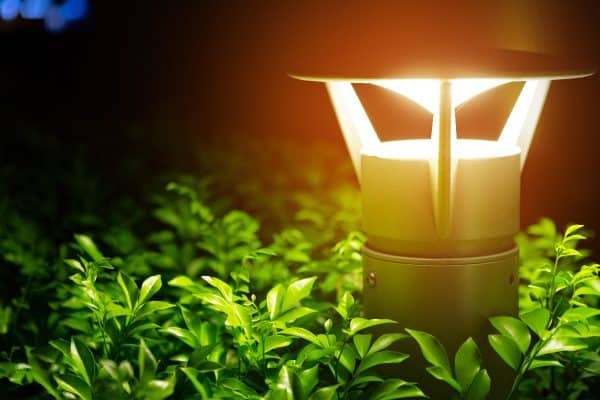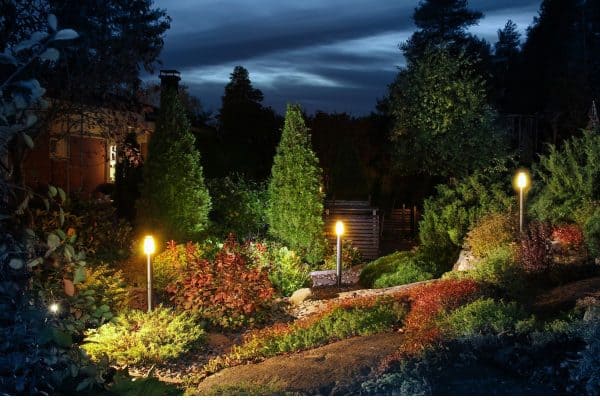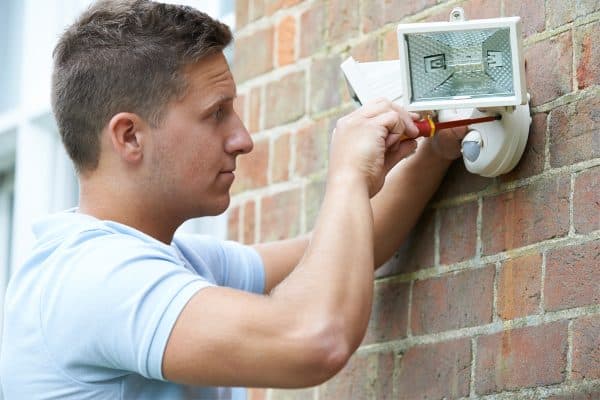For a good reason, solar lights are becoming more widely used. This type of lighting is efficient, inexpensive, portable, and friendly to the environment. But, you may be curious, is it safe to drive over solar in-ground lights? That's why we searched the web for answers, and here is what we found.
Yes, you can drive over solar in-ground lights, given that they are the walk-over/drive-over type. In addition to enhancing the safety of those approaching and moving around your home, these recessed lights give a level of sophistication and elegance that standard floodlights simply can't match.
Stay with us as we delve into the pros and cons of using solar landscape lighting. We'll also give you tips to consider before you install them. We'll also tackle how long this type of lighting lasts and how to maintain it. Keep reading!
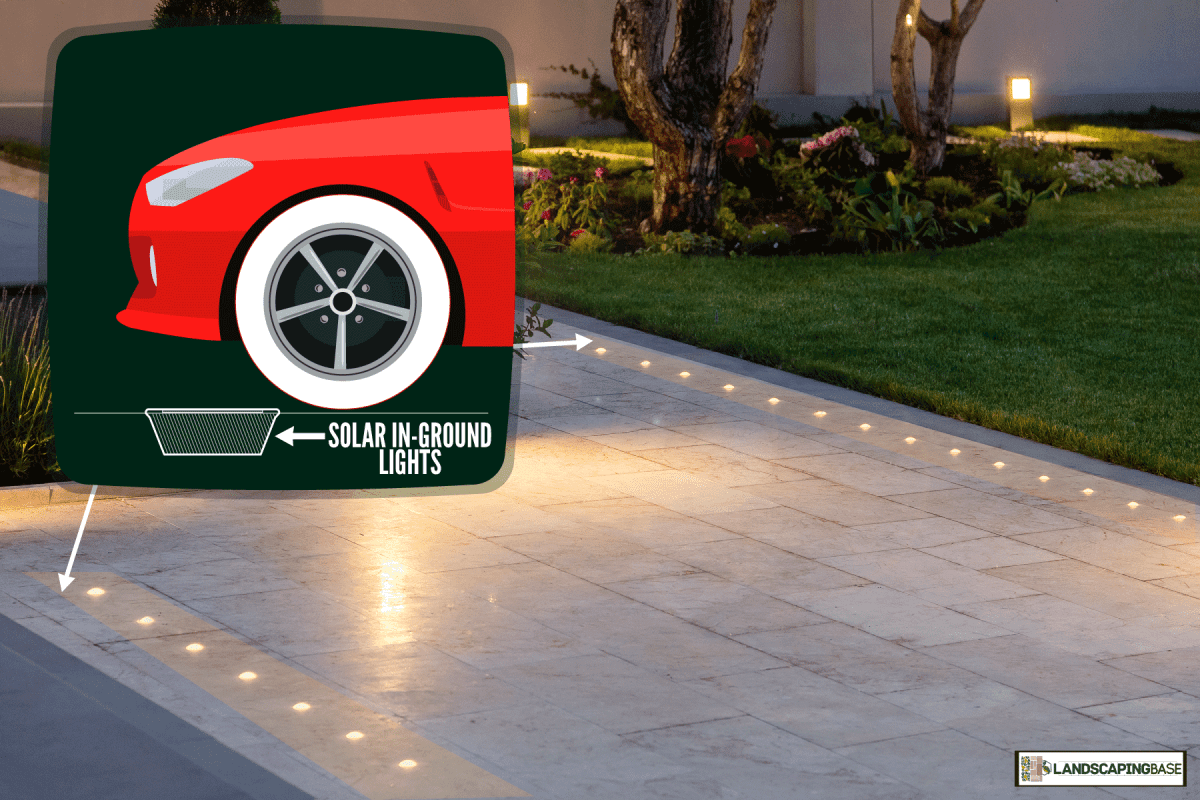
What Are The Advantages And Disadvantages Of Solar Landscape Lighting?
To help you decide whether you should give solar landscape lighting a try, here are some pros and cons you can ponder:
Pros
- Don't require electricity from any other source.
- You can position them practically anywhere that gets enough light throughout the day because you don't require energy.
- Your electricity bill won't go up.
- Lights will stay on later into the night throughout the summer because the days are longer, which may be advantageous during this busy season for entertaining.
- Without being concerned about breaking electrical cables, you may set the lights in a flowerbed or vegetable garden where you routinely dig.
- Simple to install and suitable for do-it-yourself projects because no wiring is needed.
- Spending little to nothing after your initial purchase. This is because they don't need energy and require little upkeep.
- A green option can help reduce your home's carbon footprint because they don't require energy.
- You don't need to be concerned about your kids or dogs slicing, gnawing, or stumbling over electrical wires.
Cons
- Necessary to install where the lights will receive light all day so that the batteries can be charged.
- An impractical solution in regions with trees, shrubs, bushes, or other vegetation blocks the sun.
- Cannot be placed next to buildings that block the sun for a sizable portion of the day.
- Must be cleaned regularly to prevent dust and other material from obstructing the sunlight needed to charge the batteries.
- Won't operate as long as other landscape lighting solutions on overcast days after dusk.
- Frequently prune branches and plants that block the sun.
- Frequently provide less bright illumination compared to other lighting alternatives.
- Only operate for as long as their daily charge permits.
- Change the batteries every two to three years, or sooner if they start to degrade from dampness.
- Need to replace more frequently than other types of landscape lighting due to the aging of the solar panels or batteries.
What Are Some Tips To Consider Before Installing Solar Landscaping Lights?
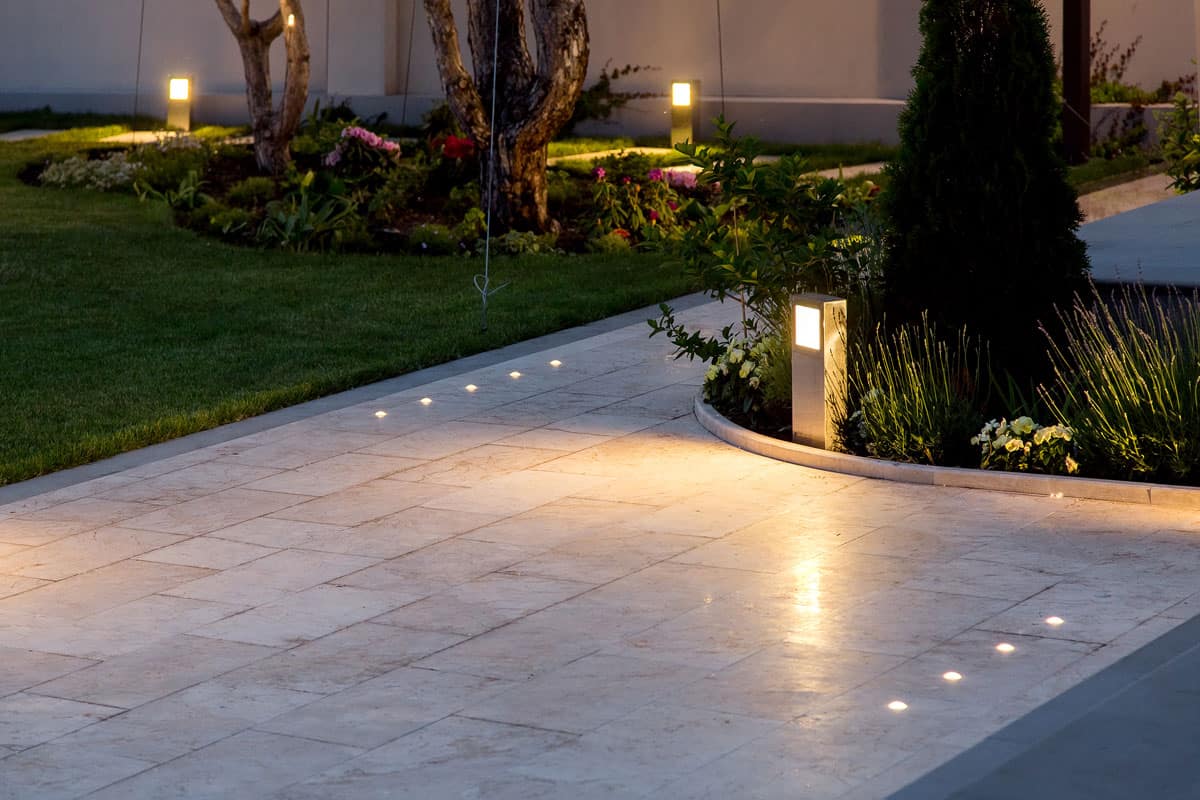
Since it requires no wiring, installing outdoor solar lights is simple. Here are six tips to make the most of your outdoor solar lights, though, for the best outcomes:
Tip #1: Know What Feature You Want to Emphasize
Choose what you want to illuminate before installing your solar lighting.
If it's a garden pathway, make sure the lights are set close together to indicate which direction the path travels, particularly if the path winds.
If you want to highlight an object, the light must be close enough to illuminate the object during the evening and midnight hours while illuminating it. The convenience of shifting outdoor solar lighting around allows you the luxury of experimenting with its position.
Tip #2: Clear Or Avoid Any Obstructions
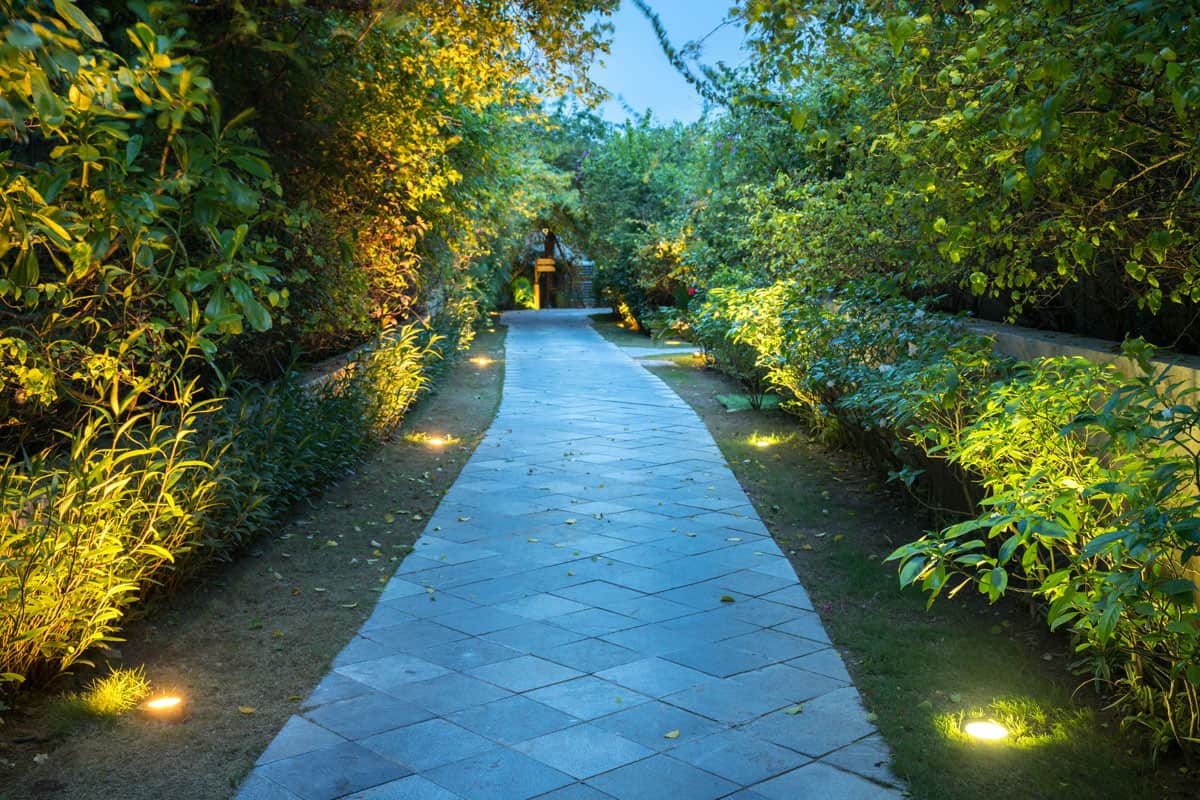
If you have above-ground solar lights, avoid positioning the solar lighting fixtures in the way of edgers or lawnmowers when putting them outdoors.
Additionally, positioning the units too close to a driveway increases the risk of a car running over your lights. Make sure the units are placed safely and where they can be seen during the day without being tripped over or run over.
However, being tripped or run over is not a problem if you have in-ground lights.
Tip #3: Maximize Sunlight Availability
The necessity for direct sunlight is an important consideration when installing outdoor solar lighting. This entails situating them where they will receive the most sunshine possible each day. Branches or overhangs should not shade a small solar panel on the light unit.
Tip #4: Be Mindful Of The Solar Panel Placement
Place the solar panel where it will receive lots of sunshine. Placement is crucial when installing solar outdoor lighting that needs its own larger solar panel.
In these devices, a cable connects the solar panel to the fixture. For the best protection from rain and moisture when burying the cable, dig down at least 6 inches into the ground. If it needs more protection, you can use plastic tubes.
Tip #5: Charge The Lights Before You Install Them
Before installing your outdoor solar lighting, make sure it is fully charged. Also, ensure that each fixture receives 12 to 14 hours of direct sunlight, as the battery charge for light might take up to two days. Before installing the fixture, clean the panel to ensure it charges more quickly.
Tip #6: Prepare The Soil Where You Will Install The Lights

Water the soil several hours before installing outdoor solar lighting in hard or dry soil to simplify the installation. You can also lightly disturb the earth with a shovel or a fork. Avoid driving too aggressively because doing so could damage the solar light stake.
Click here for this product on Amazon.
How Long Do Solar Ground Lights Last?
Typically, the outdoor solar lights' batteries can last 3–4 years before they need to be changed. The LEDs themselves have a ten-year or longer lifespan.
When the lights can no longer keep a charge to illuminate the area at night, you know it's time to change the parts.
Click here for this product on Amazon.
How Long Do Solar Ground Lights Stay On?
Your outdoor solar lights will be able to shine all evening if they get enough sunshine for a full charge, starting as it gets dark out, around sunset.
Depending on how efficiently the panels can absorb the light, lights will occasionally stay on longer or shorter than they should. Once more, ensuring your lights are in the right location may help ensure they operate at their peak efficiency.
Does Solar Lighting Require Maintenance?
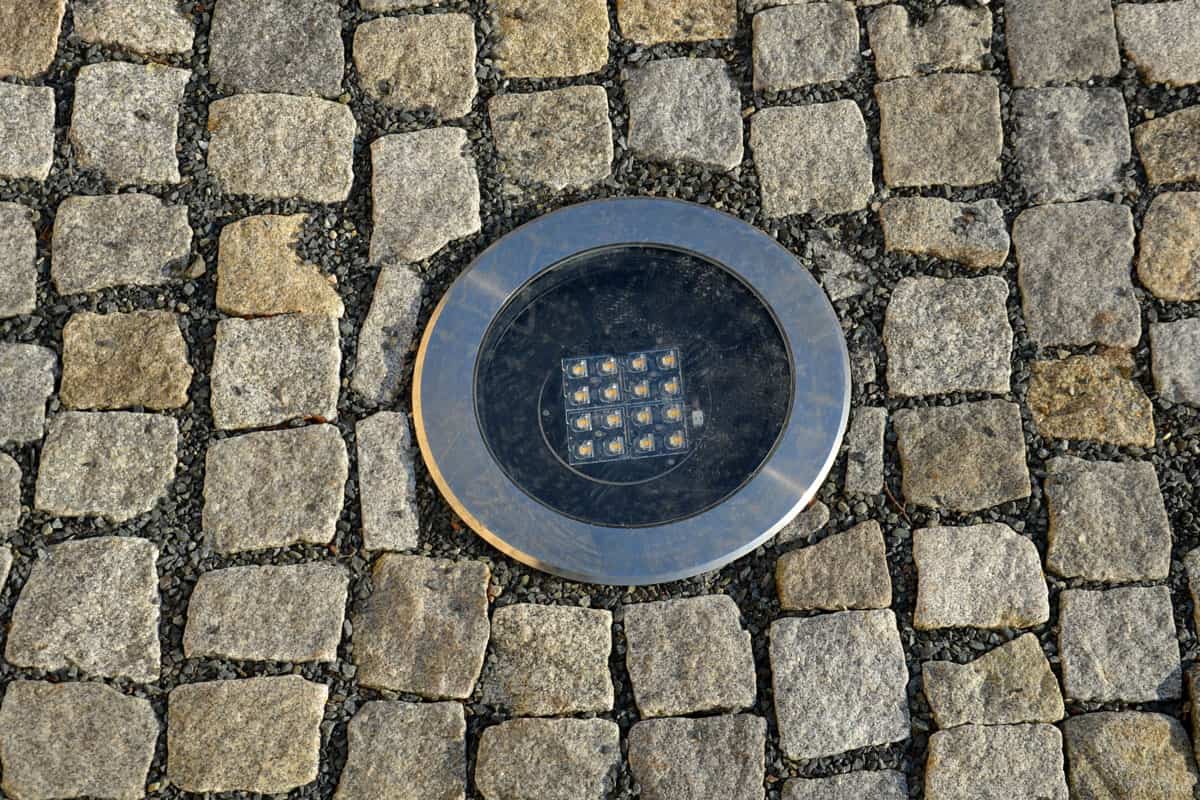
This type of lighting doesn't require much maintenance. However, you still need to do these maintenance practices to ensure that your solar ground lights will last a long time:
- Keep the panels clear of any material, including leaves, snow, bird droppings, and other objects that could hinder their capacity to charge.
- Turn off your solar lights if you anticipate a prolonged period of cloudy weather because using the lights while they are not fully charged might diminish their battery life.
- And although the panels are weather-resistant, they aren't unbreakable, so if winters are harsh where you live, you might want to put your lights away in storage for the year.
In Closing
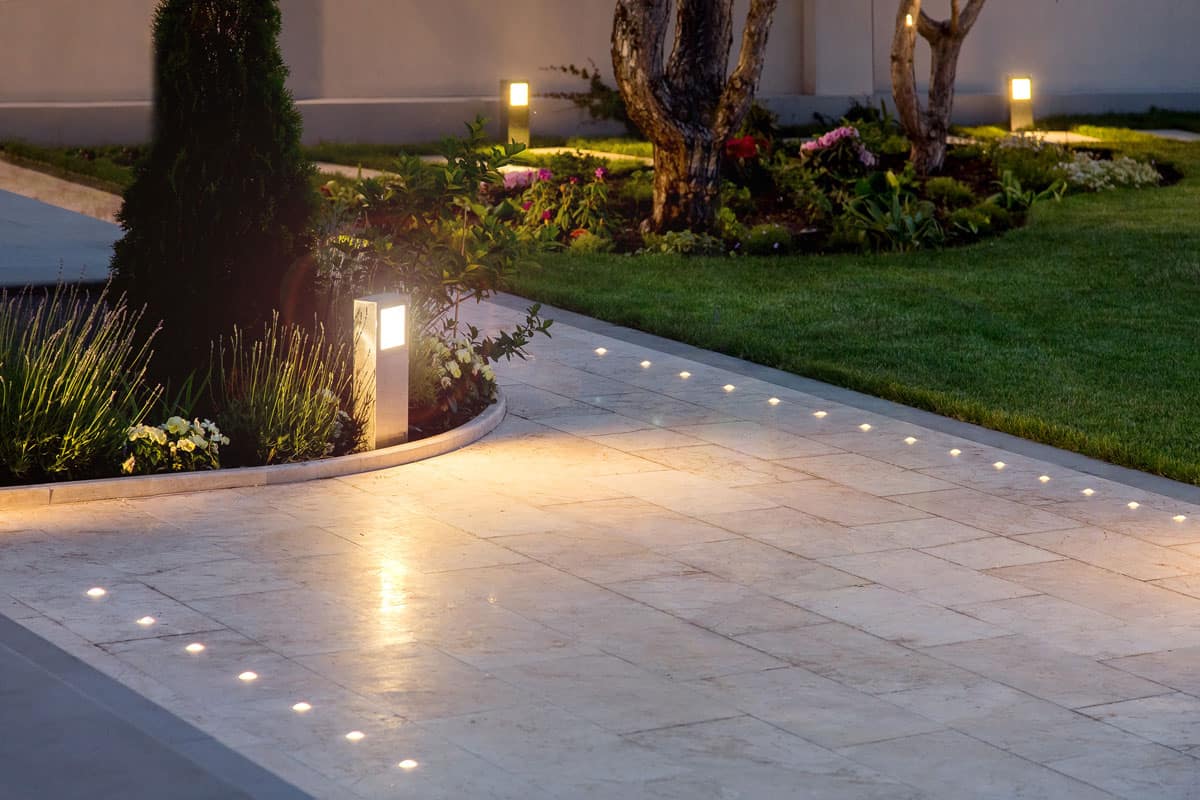
With in-ground lights, you can showcase your home for years to come in a beautiful, safe, and cost-effective manner. Although there are still some factors to consider, especially if the region you're in doesn't receive much sunlight.
Additionally, with the proper maintenance, you can ensure that your lights last as long as possible.
Before you go, you can check out these related articles to learn more about solar lighting:
15 Great Solar Lighting Ideas For A Retaining Wall
Does Lightning Affect Solar Lights?



